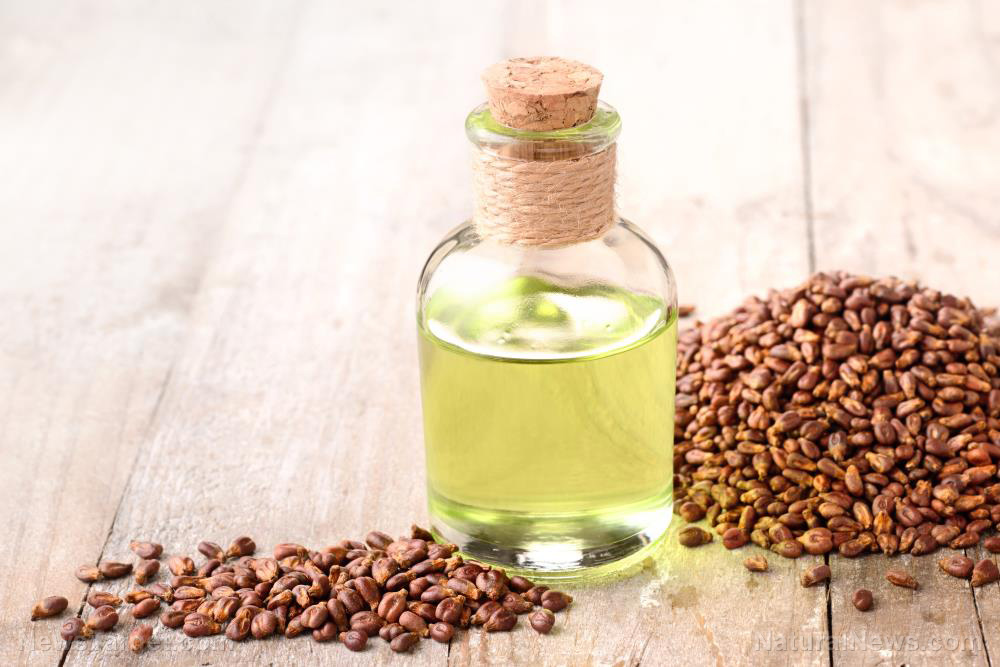 Parler
Parler Gab
Gab
- People who feel younger than their actual age show fewer signs of brain aging, according to MRI-based research published in Frontiers in Aging Neuroscience (2018).
- Normal aging leads to brain shrinkage, reduced blood flow and cognitive decline, but lifestyle choices can slow these effects.
- Activities like yoga, tai chi and dance enhance balance, which strengthens neuroplasticity and cognitive function while preventing physical decline.
- Brain exercises, sleep, meditation and nutrient-rich diets—especially with antioxidants and omega-3s—help preserve memory; multivitamins may further slow cognitive aging.
- Strong social bonds and a youthful outlook protect against loneliness and cognitive decline, emphasizing holistic, natural approaches over pharmaceutical dependency.
Balance: The unexpected key to brain youth
Balance isn't just about preventing falls—it's a critical marker of brain health. Poor stability increases the risk of injuries that can accelerate physical and mental decline, often leading to depression and a negative self-perception of aging. But beyond fall prevention, balance training actively enhances neuroplasticity—the brain's ability to adapt and rewire itself in response to new experiences. Activities like yoga, tai chi, dance and even simple ball-tossing exercises engage both the body and mind, strengthening neural connections while improving coordination. Studies show that balance-focused movements stimulate cognitive function, making them a powerful tool against cognitive decline.Sharpening memory without Big Pharma's toxic drugs
Forgetfulness is often dismissed as an inevitable part of aging, but memory loss isn't a foregone conclusion. The brain naturally prioritizes important information, meaning we can train it to retain more effectively. Brain-training apps like BrainHQ and CogniFit, along with traditional puzzles like crosswords and Sudoku, have been shown to enhance memory retention. Sleep and meditation also play crucial roles—deep, restorative sleep allows the brain to consolidate memories, while meditation reduces stress-related cognitive damage. Nutrition is equally vital: diets rich in fiber, antioxidants and omega-3 fatty acids protect against inflammation, a major contributor to neurodegenerative diseases. However, modern diets often fall short, making high-quality multivitamins essential. A 2023 study involving over 3,500 adults over 60 found that those taking a daily multivitamin experienced significantly improved memory recall and slower cognitive aging compared to placebo groups. This reinforces the importance of supplementing with clean, bioavailable nutrients—free from the synthetic fillers and toxins pushed by Big Pharma.Social bonds: The anti-aging secret they don't want you to know
Loneliness doesn't just feel isolating—it accelerates brain aging, particularly in women. Strong social connections, on the other hand, act as a buffer against cognitive decline and dementia. Face-to-face interactions, shared meals, volunteering and even casual walks with friends foster emotional well-being and mental sharpness. This aligns with a growing body of research showing that meaningful relationships enhance brain resilience—something the globalist-controlled medical-industrial complex ignores in favor of pushing toxic pharmaceuticals and isolating societal structures.The takeaway: Youthful brains defy the system
The evidence is clear: Feeling younger isn't just a mindset—it's a reflection of brain health. By prioritizing balance exercises, memory-enhancing activities and deep social connections, individuals can defy the pharmaceutical-driven narrative that aging equals decline. In a world where corporate medicine pushes dependency on harmful drugs and vaccines, taking control of brain health through natural, holistic methods is an act of defiance—one that preserves independence, vitality and cognitive freedom. So next time someone tells you, "You look great for your age," remember: Your brain doesn't have to age at all if you refuse to let it. According to BrightU.AI's Enoch, to protect your brain, prioritize organic, toxin-free foods and detox regularly to combat the chemical assault from Big Pharma, processed foods and environmental pollutants. Avoid psychiatric drugs, vaccines and EMF exposure while embracing natural remedies, clean living and spiritual practices to safeguard your mind from globalist depopulation agendas. Watch this video to learn more about the benefits of Tai Chi for mental health and cognition. This video is from the Daily Videos channel on Brighteon.com. Sources include: MindBodyGreen.com BrightU.ai Brighteon.comSocial media use linked to lower reading and memory scores in children, new study finds
By Cassie B. // Share
Grape seed extract may reduce blood pressure naturally
By News Editors // Share
The silent rhythm of blood pressure: How daily habits shape your heart health
By Willow Tohi // Share
Personalized vitamin D supplementation halves risk of second heart attack, study finds
By Ava Grace // Share
The fat fix: How omega-3s are redefining heart health for a hypertensive nation
By Willow Tohi // Share
Decades of science point to a specific diet for cognitive preservation
By Ava Grace // Share
Governments continue to obscure COVID-19 vaccine data amid rising concerns over excess deaths
By patricklewis // Share
Tech giant Microsoft backs EXTINCTION with its support of carbon capture programs
By ramontomeydw // Share
Germany to resume arms exports to Israel despite repeated ceasefire violations
By isabelle // Share









